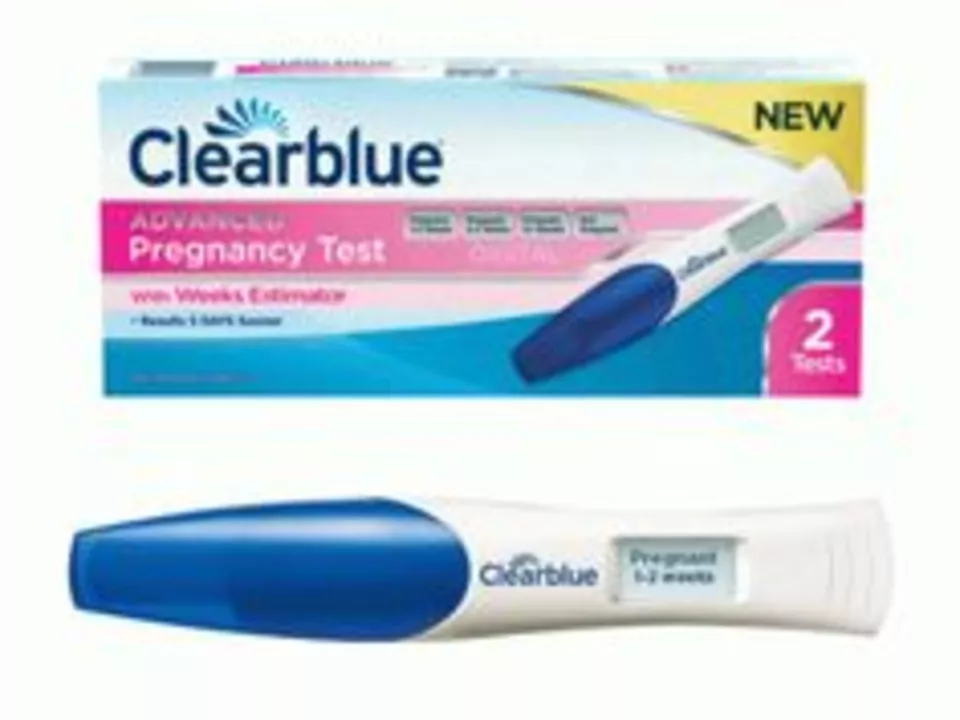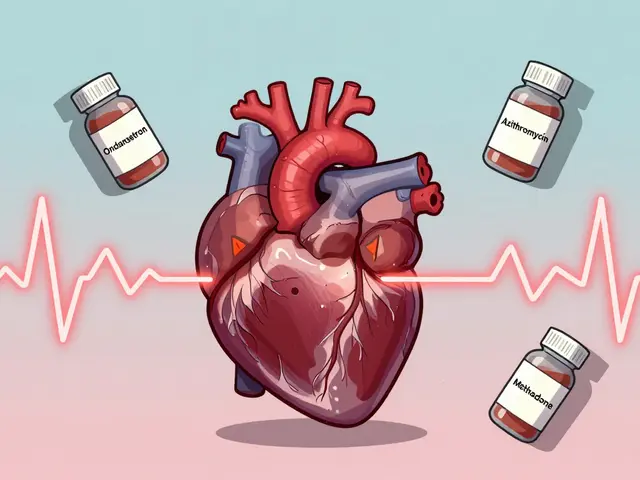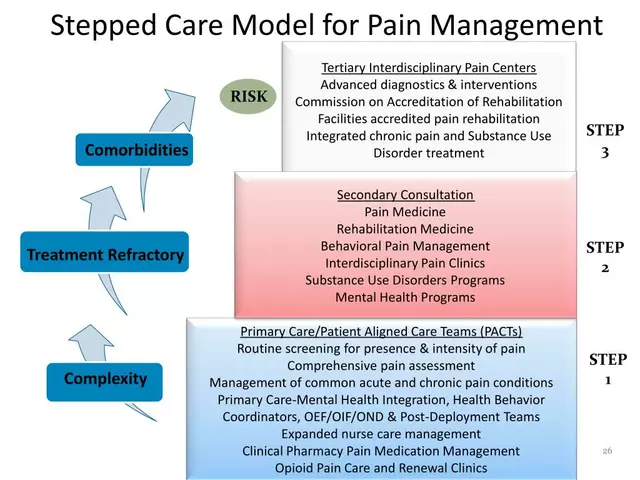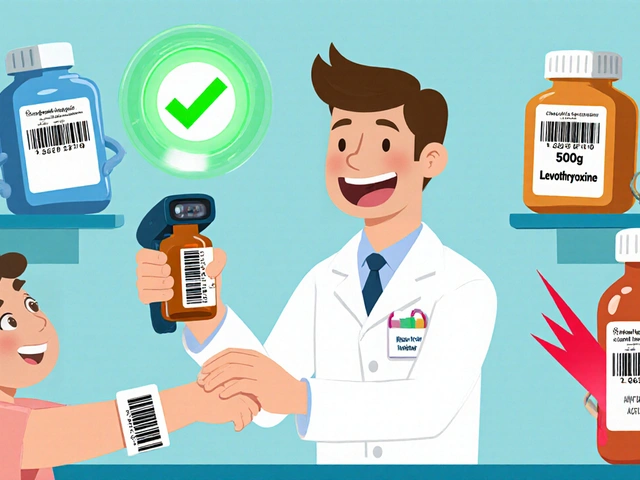Understanding Ovulation and Pregnancy Tests
Ovulation tests and pregnancy tests are essential tools for women who are trying to conceive or monitor their reproductive health. These tests can provide valuable information about a woman's fertility window, allowing her to make informed decisions about when to try for a baby. In this article, we will explore the connection between ovulation tests and pregnancy tests, and how they work together to provide a comprehensive picture of a woman's reproductive health.
What are Ovulation Tests?
Ovulation tests, also known as ovulation predictor kits (OPKs), are at-home tests that help women determine when they are ovulating. Ovulation is the process by which a mature egg is released from the ovary, making it available for fertilization by sperm. Knowing when you are ovulating can be crucial in increasing your chances of getting pregnant, as the egg is only viable for a short window of time, typically 12-24 hours.
Ovulation tests work by detecting the presence of luteinizing hormone (LH) in your urine. LH levels surge about 24-48 hours before ovulation, signaling to the ovary that it is time to release an egg. By testing for this hormone, women can identify the best time to have intercourse to maximize their chances of conception.
What are Pregnancy Tests?
Pregnancy tests are designed to detect the presence of human chorionic gonadotropin (hCG) in a woman's urine or blood. hCG is a hormone produced by the developing placenta shortly after the fertilized egg implants in the uterine lining. This hormone is what causes the typical pregnancy symptoms, such as morning sickness and breast tenderness, and its presence can be detected as early as a few days after implantation.
Home pregnancy tests are urine-based and can typically detect hCG levels as low as 25 mIU/mL. Blood tests, on the other hand, can detect even lower levels of hCG and are typically more accurate but must be performed by a healthcare professional.
How Ovulation Tests Can Help Predict Pregnancy
As mentioned earlier, ovulation tests can help you identify your most fertile days, which can be crucial in increasing your chances of getting pregnant. By timing intercourse around your ovulation window, you maximize the likelihood that sperm will be present when the egg is released, increasing the chances of fertilization and, ultimately, pregnancy.
It is important to note that ovulation tests do not guarantee pregnancy; they simply provide information about when you are most likely to conceive. To confirm pregnancy, you will need to take a pregnancy test after a missed period.
How Pregnancy Tests Confirm Ovulation
While ovulation tests can help predict when you are most fertile, pregnancy tests are the only way to confirm that ovulation has actually resulted in pregnancy. A positive pregnancy test is an indication that the fertilized egg has implanted in the uterus and has started producing hCG, which is only present during pregnancy.
It is important to wait until after your missed period to take a pregnancy test for the most accurate results. Testing too early can result in a false negative due to low hCG levels.
The Importance of Tracking Your Menstrual Cycle
Understanding your menstrual cycle is essential for maximizing your chances of getting pregnant and using ovulation and pregnancy tests effectively. The first day of your period is considered day one of your menstrual cycle, and the length of the cycle can vary between women, usually ranging from 21 to 35 days.
By tracking your menstrual cycle, you can better predict when ovulation will occur and when to start using ovulation tests. This can also help you identify any irregularities in your cycle that may be impacting your fertility.
Factors That Can Affect Ovulation Test Results
While ovulation tests can be an effective tool in predicting fertility, it is essential to be aware of factors that can affect their accuracy. Some common factors that can impact ovulation test results include:
- Drinking large amounts of fluid before testing, which can dilute the concentration of LH in your urine
- Testing at the wrong time of day (it is generally recommended to test in the afternoon or early evening)
- Using expired or improperly stored tests
- Having a medical condition that affects LH levels, such as polycystic ovary syndrome (PCOS)
Factors That Can Affect Pregnancy Test Results
Similarly, there are factors that can affect the accuracy of pregnancy tests. Some of these factors include:
- Testing too early, before hCG levels are detectable
- Using an expired or improperly stored test
- Not following the test instructions correctly
- Reading the test results after the recommended time frame, which can result in a false positive due to the evaporation line
- Having a medical condition or taking medications that can affect hCG levels
When to Consult a Healthcare Professional
If you have been trying to conceive for a year (or six months if you are over the age of 35) without success, it is recommended that you consult with a healthcare professional. They can help identify any potential fertility issues and recommend appropriate treatments or interventions.
Additionally, if you have concerns about irregular periods, persistent positive ovulation tests without a resulting pregnancy, or any unusual symptoms, it is essential to consult with a healthcare professional for guidance and potential testing.
Conclusion
Ovulation tests and pregnancy tests are valuable tools that can help you understand your fertility and increase your chances of conceiving. By using these tests in conjunction with tracking your menstrual cycle, you can better predict your fertility window and confirm pregnancy once it occurs. However, it is essential to be aware of factors that can affect the accuracy of these tests and to consult with a healthcare professional if you have concerns about your fertility or reproductive health.







Chris Bock
May 18, 2023 AT 07:21Alyson Knisel
May 18, 2023 AT 17:21Lee Lach
May 19, 2023 AT 15:29Tracy McKee
May 21, 2023 AT 03:15Abigail M. Bautista
May 22, 2023 AT 08:12Rohan Puri
May 22, 2023 AT 09:43Mandeep Singh
May 24, 2023 AT 06:57Chris Bellante
May 25, 2023 AT 17:36Nicole Manlapaz
May 27, 2023 AT 12:25Frederick Staal
May 27, 2023 AT 14:39erin orina
May 27, 2023 AT 18:37Lisa Uhlyarik
May 29, 2023 AT 11:28Kelley Akers
May 30, 2023 AT 13:38Cameron Perry
May 30, 2023 AT 19:14JOANNA WHITE
May 31, 2023 AT 20:28Peggy Cai
June 2, 2023 AT 12:32Taylor Smith
June 3, 2023 AT 21:01Tammy Cooper
June 5, 2023 AT 08:54Alyssa Hammond
June 6, 2023 AT 21:21Chris Bock
June 7, 2023 AT 08:09